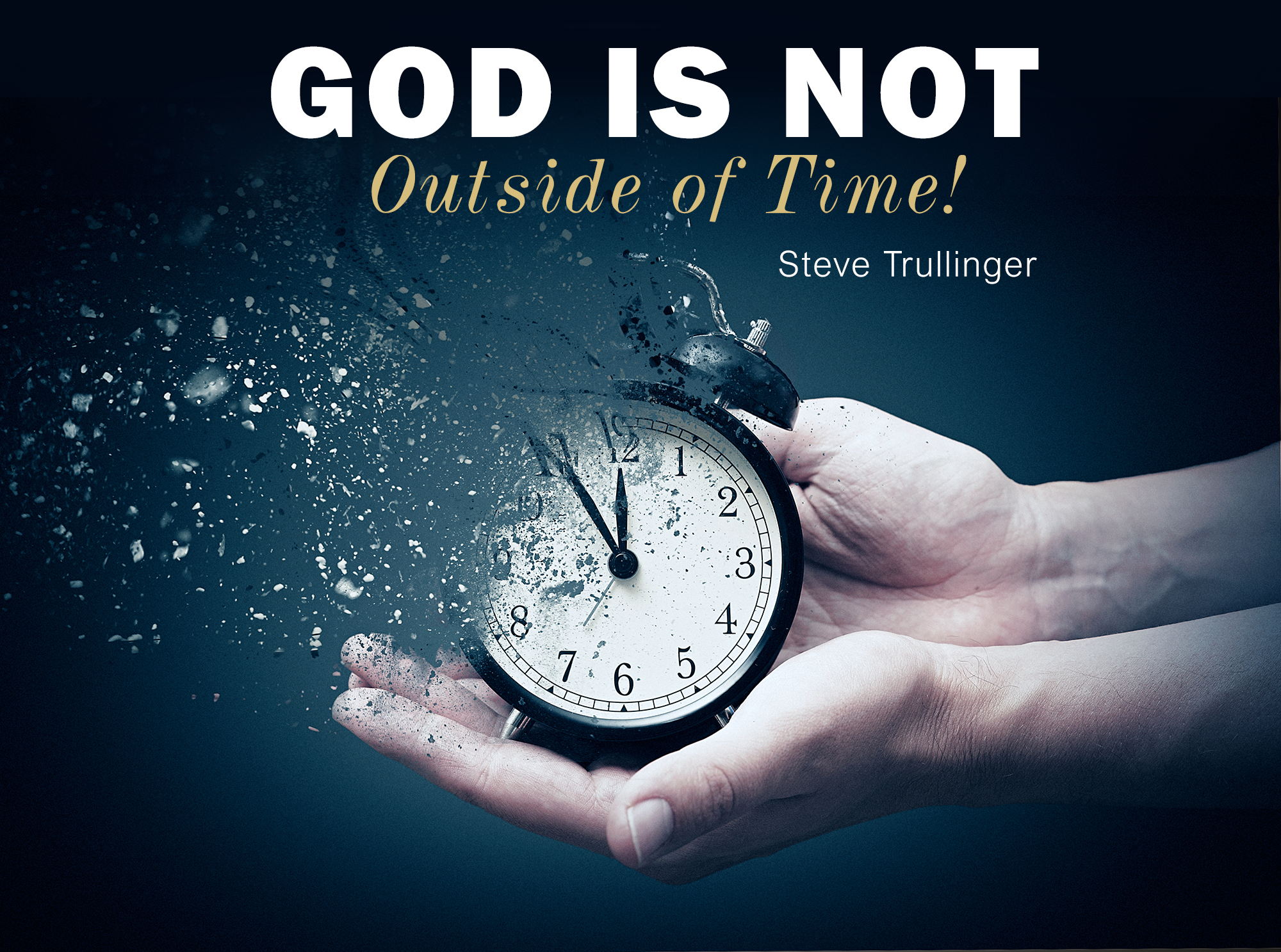
Why does time never end?
I was curious, pondering another of those childlike “Why?” questions that my parents could never answer, and seemed to “kick down the road” into my adulthood for eventual enlightenment by someone wise and patient enough to answer me.
I thought that getting a Ph.D. in Physics could help me discover some answers. Indeed, I found some, but often many more questions would then spring up with deeper mysteries than the one just solved!
After about 25 years of physics-assisted chasing of mushrooming mysteries, some answerable but many left as puzzles, I found there is indeed someone wise and patient enough to help me. His name is Abba, my heavenly Father.
It was such a relief to learn that this Father never answers me with the cop-out, “Go ask your mother!” Instead, Abba loves to teach and guide me into truth, in loving response to my fascination with His creation. So, I felt confident that He would answer my question.
God created time, and most assuredly He could have decided to end it someday. And indeed, there is even the possibility within the realm of human understanding that time might simply “cease,” according to certain solutions of Einstein’s equations of General Relativity.
But God purposed to have time continue forever, and we have plenty of confirmation in Scripture that eternity indeed exists. For example, He has “set eternity in the human heart” [Ecclesiastes 3:11]. We know that His love endures forever [see, for example, 1 Chronicles 16:34, 2 Chronicles 5:13; 7:3, Psalms 100:5, Jeremiah 33:11, and many others], that His righteousness endures forever [see, for example, Psalms 111:3, 112:3, and many others], and that His words will never pass away [Matthew 24:35]. The list of such Scriptures is very long indeed.
So, my question was not whether time continues forever. Rather my question for Abba was, “Why?” “Why did you make time so that it never ends?”
Abba didn’t answer me directly; rather He delegated to the Holy Spirit the joy of sharing His purpose with me. Three words came forth with incredibly profound impact:
“Love demands eternity!”
Because God is infinite and good, and He is love, we know that His love is infinite and good! No surprise there. But did you know that if you are born again, God will withhold no good thing from you? This is a promise [in Psalm 84:11] to those whose walk is blameless. Jesus took all blame upon himself at the Cross and there is no blame assigned to you because of this incredible sacrifice. So, you are qualified (by Jesus!) to receive every good thing.
The revelation of God’s love is a good thing, and He therefore cannot keep it from you. Indeed, He desires strongly to reveal His love to you. Because it is infinite, it will take an infinite time to reveal it to you, and thus if God were to “stop” time at some point in the distant future, then He will have stopped the progressive revelation of His love to you. This would violate His promise to you to withhold no good thing, and thus He cannot stop time!
Put another way, God will always continue to reveal more of His infinite love to you and this requires time to never end. Love demands eternity! God, being in His very nature love, is “compelled” to reveal His love (Himself!) to you. A companion conclusion is that because Abba loves you, He was “compelled” to have you live forever. Put yet another way,
“Of the increase of the revelation of Abba’s love, there will be no end!”
This thought absolutely thrills me – that no matter how much of Abba’s love I’ve been blessed to receive and/or understand at some point in my relationship with Him, there is always an infinite amount more that is yet to be discovered and received. This is the nature of infinity – there is always more, infinitely more.
Eternity is indeed an incredibly precious gift from God – His love demands it!
[More insights into how and what Abba thinks about you can be found in Steve’s recent book entitled, “Windows to the Father’s Heart,” available at www.fatherstouch.org/store or at www.amazon.com.]
ORDER HERE




